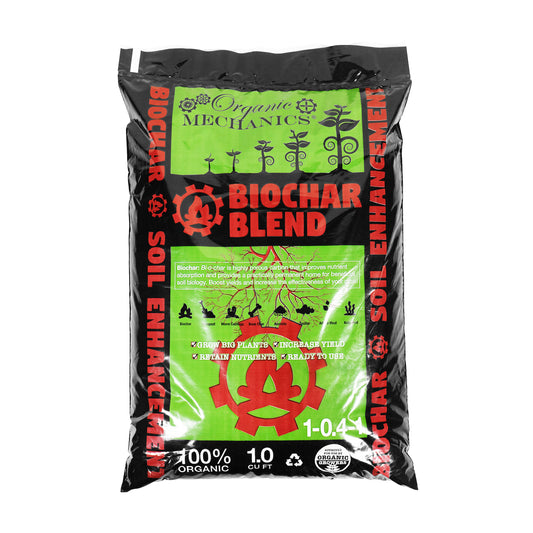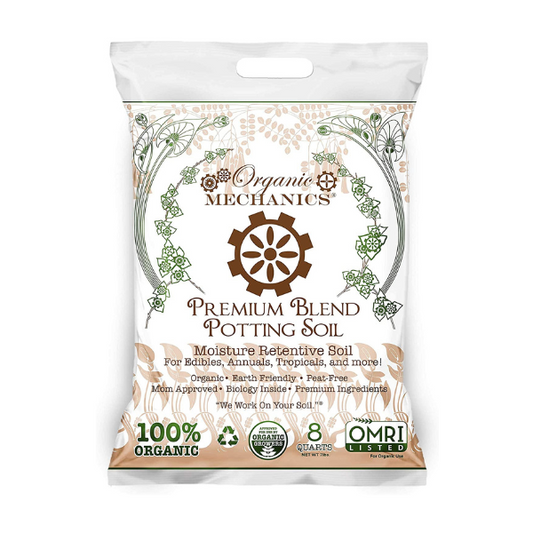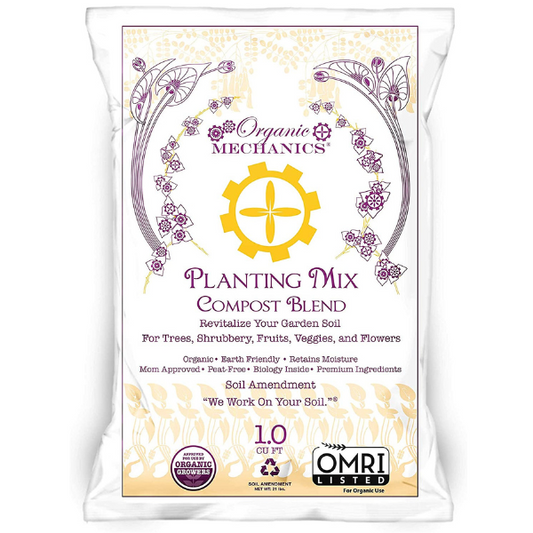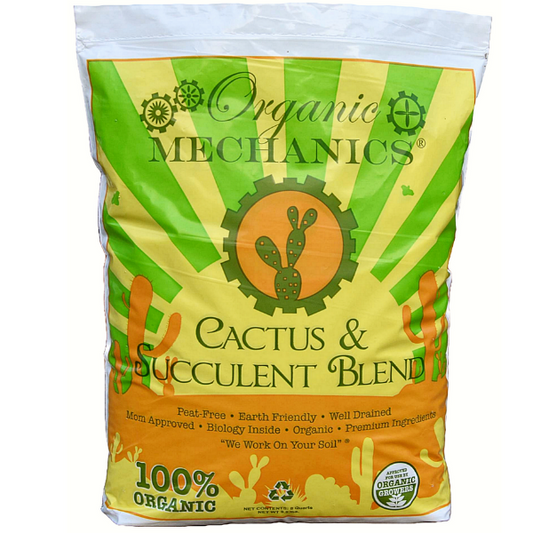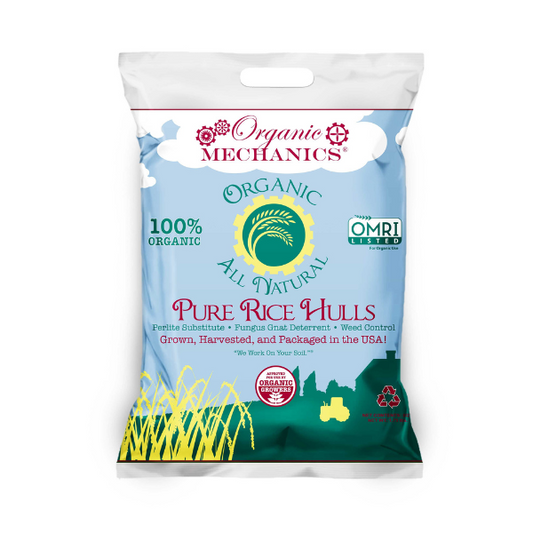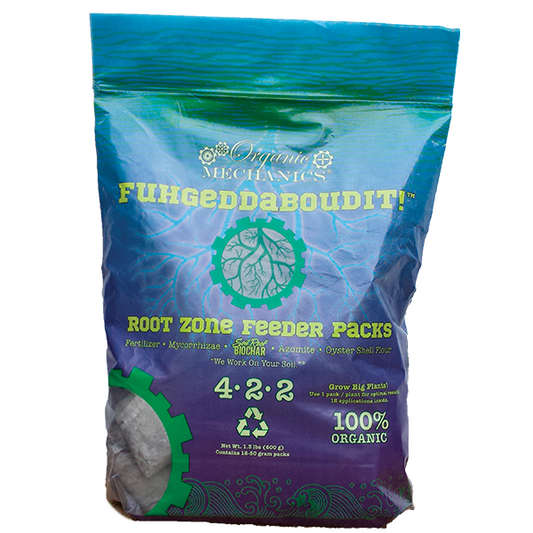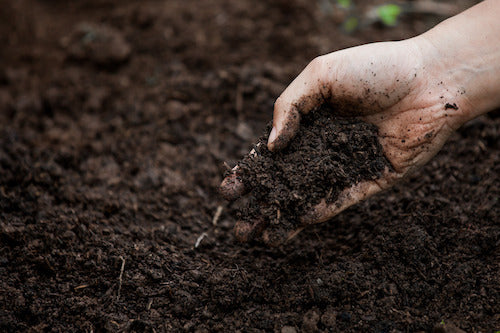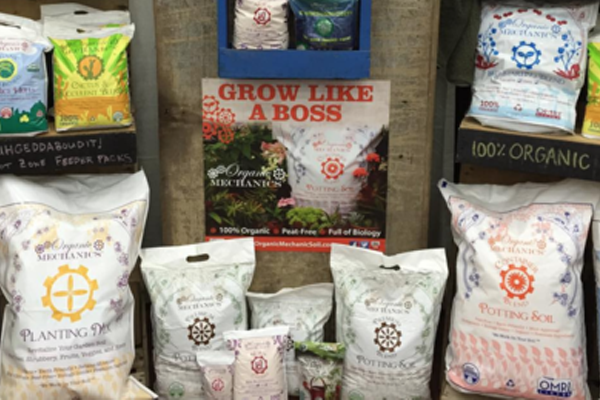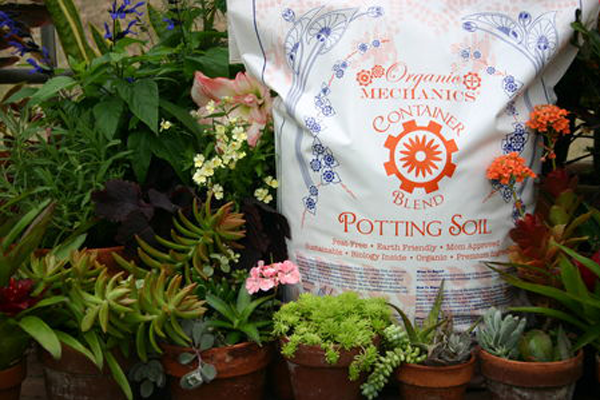
ARTFULLY CRAFTED REGENERATIVE ORGANIC LIVING SOILS
Featured products
-
ORGANIC MECHANICS® Biochar Blend Soil Enhancement (1-0.4-1)
Regular price From $14.99 USDRegular priceUnit price / per$14.99 USDSale price From $14.99 USD -
ORGANIC MECHANICS® 110 BLEND Potting Soil–> Level Up your 70:30 Blend
5.0 / 5.0
(1) 1 total reviews
Regular price $29.99 USDRegular priceUnit price / per$29.99 USDSale price $29.99 USD -
ORGANIC MECHANICS® Premium Blend Potting Soil
Regular price From $8.99 USDRegular priceUnit price / per$8.99 USDSale price From $8.99 USD -
ORGANIC MECHANICS® Container Blend Potting Soil
5.0 / 5.0
(3) 3 total reviews
Regular price From $11.99 USDRegular priceUnit price / per$11.99 USDSale price From $11.99 USD -
ORGANIC MECHANICS® Planting Mix Compost Blend
5.0 / 5.0
(1) 1 total reviews
Regular price From $14.99 USDRegular priceUnit price / per$14.99 USDSale price From $14.99 USD -
ORGANIC MECHANICS® Cactus & Succulent Blend
5.0 / 5.0
(3) 3 total reviews
Regular price From $6.49 USDRegular priceUnit price / per$6.49 USDSale price From $6.49 USD -
ORGANIC MECHANICS® Pure Rice Hulls
5.0 / 5.0
(1) 1 total reviews
Regular price From $9.99 USDRegular priceUnit price / per$9.99 USDSale price From $9.99 USD -
ORGANIC MECHANICS® Fuhgeddaboudit! Root Zone Feeder Packs
5.0 / 5.0
(1) 1 total reviews
Regular price $24.99 USDRegular priceUnit price / per$24.99 USDSale price $24.99 USD
How Can We Help?
Let customers speak for us
from 15 reviewsThis is my favorite potting soil. I love that it's peat-free, and my plants are always super happy in it. I wish I had a local distributor, but I'll keep ordering it anyway, because it's just that good.

It’s always high quality, and clean.

My cactuses are very happy in the new soil. It looks very nice and better quality than others I've tried. I will purchase again in the future.

Highlands Recipe
Traditional Spekekjott (Salt Cured Leg of Lamb)
My family has made spekekjott for centuries, my father (Far-Far) taught me
how to make it:
One leg of lamb
6-10 pounds of salt
Thin any external fat to about 1/16 inch thickness. Drill a small hole in the shank end of the bone. Rub the entire surface of the leg with salt until dry crystals are visible on the surface. Put in a large tub and cover with salt and let it be in a cool space for one month. Take out in about a month and drain the liquid from the tub. Put back in the tub for another 2-3 months.Hang the leg in the basement using a bent wire through the hole to hang on a pipe with a pie pan under it. Allow the leg to dry. I start on October 15th so I can serve on Christmas.
Love Terry

It will be awesome for my microgreens!!!

Mark has such stellar content on the blog!!! It informs growing and purchases!
I started using the rice hulls immediately to support growing Microgreens and wheatgrass. It is very helpful on top because it does not hinder plant growth but does discourage flying insects! It will be mixed in with the soil after these greens grow. Thank you!

110 plus fugetaboutit then top dress with dr earth start of flower is all i do easy peasy

Perfect Cactus and Succulent soil. My cactus exploded after I transplanted

I Love Organic Mechanic Soil for all my garden needs.

Always great soils since the 2000’s
At my house anyway

Everything ships promptly and I love checking out with shop pay!
This mix is magical I filled all of my Earthboxes with it and my tomatoes, peppers, and zinnias grew like crazy. I just refreshed my boxes for fall and winter veggies. Love it that I can reuse this mix for several growing seasons.


ABOUT ORGANIC MECHANICS
Founded in 2006, the Organic Mechanics Soil Company, LLC is a manufacturer and distributor of premier organic potting soils, soil amendments, and fertilizers for the professional and consumer gardening communities. Our retail products can be found in independent garden centers, houseplant shops, natural food stores, and indoor gardening stores. Our wholesale products ship to farms, growers, and landscape companies. We are proud to service most of the U.S., from the East Coast to the Southwest.
At the heart of all we do, we share a philosophy that embraces environmental sustainability and regenerative gardening practices. We are actively pursuing the dream of producing the highest quality, most earth-friendly organic potting soils, soil amendments, and fertilizers available.
This is why we choose to use biochar, compost, and coconut coir instead of peat (and rice hulls instead of perlite in most of our blends), bio-diesel to power our equipment, and recycled products and local ingredients whenever available. We are committed to operating our business responsibly and sustainably.
Factor in knowledgeable, personal service, the superior performance results you’ll enjoy in your garden, and the ability to re-use our soil products a second growing season, and we hope you’ll agree that Organic Mechanics is indeed the best potting soil you’ll ever buy.
Dig your hands into a bag of Organic Mechanics and start gardening… your plants will love you for it!
Proud Supporter of Rodale Institute
-

-
We’re honored to be part of the “Proud Supporter of Rodale Institute” program! Rodale Institute, the nation’s oldest, most trusted organization devoted to organic research and education, is partnering with select brands to create products that support regenerative organic agriculture. This program recognizes farms and producers who go above and beyond in their material sourcing and farming practices.

